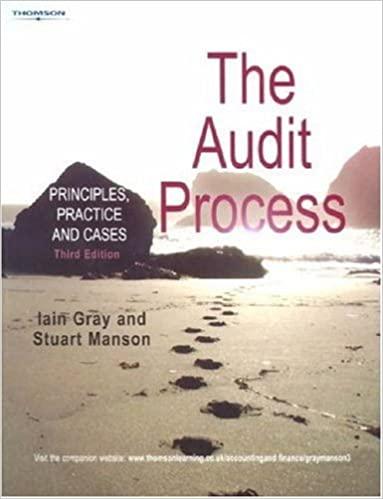Question
BA211 Financial Accounting Project: Valentines Day Chocolate Prelude, January 14 th : Cupid and his family, as is their regular routine, visit the local farmers
BA211 Financial Accounting Project:
Valentines Day Chocolate
Prelude, January 14th:
Cupid and his family, as is their regular routine, visit the local farmers market on their weekly shopping trip. Deborah, a local candy-producer and friend of Cupids family, is selling her candy at the market. Cupid tells Deborah how much he likes her candy.
Deborah knows that Cupid is a budding entrepreneur and asks if he will try selling her boxed Valentines chocolates at the Food & Gift Festival on February 10th, 11th, & 12th. Deborah says that she will be out of town most of that weekend and wants Cupid to sell the product to keep building awareness of her candy products. She also says that she has a booth reservation and he would have to pay the Food & Gift Festival show management a $300 booth fee on February 10th along with a refundable $30 clean-up fee. Deborah gives the following information:
- Boxed Valentine chocolate sells at a market price of $9.00 each
- Deborah can prove that her chocolate has Fair Trade Certification
- Cupid can buy boxed chocolate from her for $5.00 each
- Boxed chocolate inventory is enough to cover the needs of Food & Gift Festival
- Cupid can keep any of the net income from the festival
- Deborah will return on the afternoon of February 12th and expects to be paid then for inventory acquired & sold from her storage unit!
Cupid agrees to Deborahs offer and decides to sell boxed Valentine chocolates at the Food & Gift Festival. Cupid asks his sister, Ginger, to help in the booth and he would pay her $30 a day. Ginger agrees.
Friday, February 10th:
Prior to coming to the show, Cupid took $500 out of his secret stash of personal savings and he acquired 120 boxes from Deborahs storage unit. Cupid sets up the stand and pays the show manager, Kavinda, $330 in cash.
At 2:30 in the afternoon, Mr. Lupercalia, prepays $180 to buy 20 boxes that Cupid will have ready for pick-up on Sunday morning.
Walk-up sales are good and they sell 105 boxes in this manner by end of the day.
Ginger, who worked hard, mentions that her wage of $30 per day is too low. Cupid and Ginger agree that $60 a day is fair and that she will be paid at the end of the festival.
Saturday, February 11th:
Before the show opens, Cupid retrieves 350 boxes from the storage unit because Saturday is believed to be the big sales day.
The Young Professionals club asks Cupid if they could buy 40 boxes and pay him tomorrow, Cupid agrees.
Ms. James of Fair World Trade Coalition comes by on Saturday representing her charitable organization that tries to make holidays more bearable for the less fortunate in Oregon. Ms. James, seeing the Fair Trade Certification sign, asks Cupid if he would consider making a donation of boxed chocolate to this worthy cause. After a brief pause, Cupid says yes and gives Ms. James 20 boxes of chocolate. (Cupid still has to pay for inventory used, no matter what the purpose.)
Walk-up sales amounted to 277 units sold for the day.
Sunday, February 12th:
Before the show opens, Cupid retrieves 200 boxes from the storage unit.
Mr. Lupercalia picks up his boxes and the Young Professionals pay Cupid.
Walk-up sales amounted to 207 units sold for the day. Kavinda comes by, sees a clean booth, and returns the $30 cleaning fee.
Ginger mentions that sales today were about twice Fridays sales and she wants a bonus, after haggling with her brother, they agree to a $60 bonus-payment. Cupid pays Ginger all amounts owed.
Deborah stops by and is amazed by the amount of sales made. Cupid pays Deborah for the inventory retrieved less what she takes back with her. Cupid recovers his original cash-injection by withdrawing $500.
Required:
Prepare, in good form, a classified balance sheet and an income statement at the end of each day (February 10th, 11th & 12th) using accrual accounting. There are various examples of statements made in good form in your textbook. Treat each day as a separate accounting period. Assume all transactions are material.
Step by Step Solution
There are 3 Steps involved in it
Step: 1

Get Instant Access to Expert-Tailored Solutions
See step-by-step solutions with expert insights and AI powered tools for academic success
Step: 2

Step: 3

Ace Your Homework with AI
Get the answers you need in no time with our AI-driven, step-by-step assistance
Get Started


